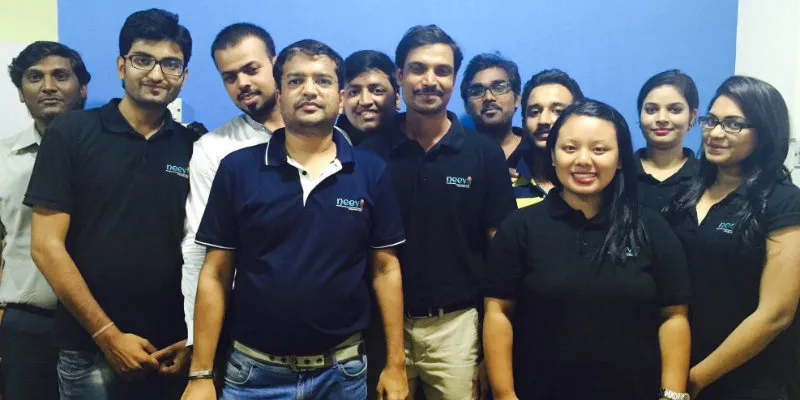Bengaluru-based Neev Finance helps tackle fee woes by providing loans for K-12 education
Private schools in India are gradually moving towards collecting fees from parents on annual, half-yearly and quarterly basis, as against the traditional mechanism of monthly payments. This structure helps schools manage their cash-flow with much greater certainty.
However, a significant section of the middle-class society in India cannot meet the payment requirement when it is collected as a lump sum. Therefore, to ensure that a child’s educational progress does not get hampered, Bengaluru-based NeevFinance structured a financial proposition that addresses the needs of both the schools as well as the parents.
Founded in June 2015, NeevFinance, a RBI-registered non-banking financial company (NBFC) provides loans for K-12 education. The process starts with signing an agreement with the educational institution, after which the parents are eligible to apply for a loan, varying in amount from Rs 30,000 to two lakh per annum.

This is how it works: Neev offers a financial loan to the parents for an amount equal to the total amount due to the school, for a particular term at the beginning of the period, at a pre-agreed cost. The parent then repays the loan to Neev in equated monthly installments over the period of the loan term.
The school receives the entire fees upfront from Neev on behalf of the parents, and, in return, will need to support Neev for timely collection of dues from the parents.
We started with a seed capital of Rs one crore and the founders have made personal investments since then. We are now looking to raise funds for further expansion,” explains Rishi Kedia, Co-founder and CEO, Neev Finance, who brings 11 years of experience in financial services in India working across Citibank, Kotak Mahindra Bank, Reliance Capital and Capital First Ltd.
Preparing a business plan
Rishi conceived the idea of Neev Finance and prepared a detailed business plan and shared it with his cousin, Nikhil Saraf, a chartered accountant by profession. Nikhil connected Rishi with his childhood friends Samir Agarwal, Amit Jaiswal and Kavita Agarwal. The five teamed up to bootstrap Neev Finance and establish the infrastructure to go live.
Both education and financing promise to be very attractive sectors in the country. There was a big white space in this segment for someone to tap into, and we thought we should go ahead and grab the opportunity and create a new market altogether in the country,” says Rishi.
When they pitched their idea to schools, the founders received positive response, as the solution can solve a major cash flow management issue for them. The response was good from the parents as well, when they started conducting awareness sessions in a few schools to spread the idea.
Neev Finance has signed an MoU with Ola Cabs to finance the school fees of the drivers' children. The startup expects to increase the number of loans in the month of June and July given the resumption of new sessions across the country.
Making money
Neev Finance gains three to five percent margin from every loan as interest, which is enough to make this NBFC profitable. SBI's student loan scheme charges two percent above Marginal Cost of Funds based Lending Rate (MCLR) for loans upto Rs 7.5 lakh.
According to Section 80E of the Income Tax Act of India, 1961, an education loan, apart from rendering financing for higher studies easier, also helps save tax, as the interest paid could be claimed as deduction. But the income tax benefits are applicable only when you take the education loan from any scheduled bank.
According to RBI data, the total exposure of all the banks to education loans was Rs 64,900 crore as of July 21, 2015. However, public sector banks are badly hit by the government mandated collateral-free loans. On an average, banks face eight percent default on this portfolio, that is Rs 5,192.
Last year, the government launched a website - vidyalakshmi.co.in - where students could seek education loans via SBI, IDBI Bank and Bank of India. Though the market of education loan for higher education has reached a certain level, education loans for private K-12 schools is yet to make its presence felt.
Neev Finance has 30 employees across Bengaluru, Kolkata, Mumbai and Nagpur. So far, it has signed up with 45 schools and disbursed around 300 applications across Bengaluru, Nagpur and Mumbai. In the next one year, this NBFC is likely to make presence in at least 12 cities. It aims to reach more than 400 schools and colleges in the next three years reaching more than 20,000 students.







